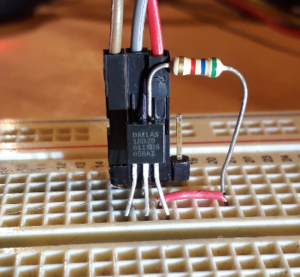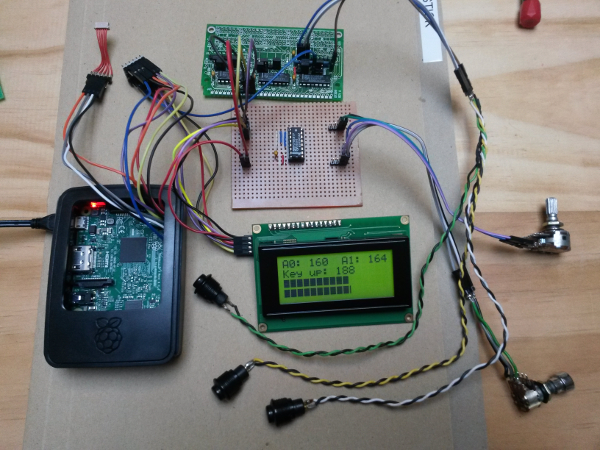In this experiment I will demonstrate how to use an external MCU to manage tricky time-constrained tasks on behalf of Android Things. Using an ATTiny85 microcontroller I’ll interface a Dallas 1-wire temperature sensor, the ubiquitous DS18B20, to a Raspberry Pi running Android Things.

The DS18B20 temperature sensor
Background (why)
Since the introduction of Android Things some have questioned the limits of Android Thing’s GPIOs. Collecting data from the Raspberry Pi running Raspbian or similar will show that GPIOs on Android Things are too slow for some applications. Discussions about GPIO speed highlight a point about operating systems in general and Android Things in particular. Android Things is not a real time OS. It will miss deadlines. It will not respond to interrupts predictably enough to satisfy some of the tasks that people may be expecting it to perform. The problem here is not the OS, but the expectations.
As mentioned in this SO answer one possible solution to this problem is to have an external helper MCU handle the hard real-time stuff. Great, but what is all this real-time stuff about?
